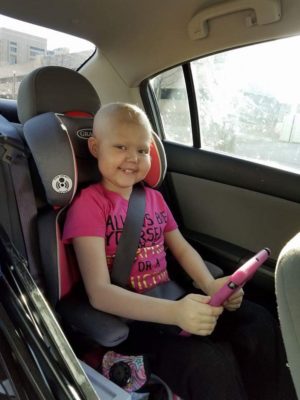Even once
I receive excellent health care. I have a large care team including an attentive PCP that is willing to take advice on managing mast cell disease; a mast cell GI specialist; an excellent colorectal surgery; a wonderful home care nurse; and a bunch of other people. I live in a city renowned for health care innovation. When I call 911, the ambulance brings me to my local hospital, a place that treats mast cell patients from around the world. I have access to medications I need. My providers are open to hearing my input because they acknowledge that I am an expert in these diseases. I have great insurance and can afford the costs of my healthcare. I can afford safe food. I have a safe place to live. I have local support from family and friends. I have a job that gives me the flexibility I need to balance my health and my work.
I am extraordinarily lucky in these respects. I am very, very cognizant of my privileges in receiving health care. Despite these privileges, I struggle every single day to facilitate my health care. I spend hours on the phone. I have an excel sheet that tells me when I need refills of my meds, when I have to schedule appointments, when I am due for various tests, and how much all of that will cost. It keeps track of prior authorization numbers, which pharmacy or office is responsible for prescribing/ordering and the name and direct line of my contact there. I have notes all over my house and reminders littered throughout my daily journals. But even when I do everything right, I sometimes have to exert a superhuman amount of effort to get something as straightforward as a refill for a harmless medication with no potential for abuse.
I have written before about how stressful this aspect of my life is. Nothing is ever easy. And everybody’s life is hard, whether they are sick or not. The difference is that rare disease patients have so many more high stakes things to do on a daily basis. It’s not an option for any of these moving pieces to fall off the board. Letting even one thing falter could be catastrophic. I am constantly worried that I am forgetting something. Not realizing that I’m out of one med for a few days can result in hospitalization. Accidentally putting two of the same pill into my morning slot in my pill box could sicken me for days.
There’s another facet of this experience, too: that most of the things we need require cooperation from someone else. An admin, a nurse, a pharmacy tech, a doctor, a case manager. These people all wield a disproportionate amount of power.
Part of learning to survive as a rare disease patient is learning how to finesse relationships and convey your needs without being overbearing. You have to learn how to converse with people without arguing, ever, because once you are arguing, you have already ceded control. It is not easy. No one likes to be told how to do their job, even if they are doing it wrong and you can improve their skills and your care. No one likes to be spoken sharply to, even if they deserve it. No one likes to feel like they are not good at their job, even if they’re not.
But the biggest danger is this: that even if you do every thing right, if you say and do all the right things, if they accept your demonstration that you need and are entitled to these things, sometimes they still won’t cooperate. Not necessarily because they don’t like you. Just because.
When you tell this to people living outside of the machinations of the healthcare establishment, they think you’re nuts. Why wouldn’t they help you, if you’ve given them no reason not to? But to say that these people would never deprive you without reason is to ignore a key feature of human nature: that sometimes, people just want to see what will happen. And in health care, when many people view patients as obstacles or enemies, they often find out what will happen: they will win a tiny victory, and we will suffer.
I saw over 100 doctors before I was diagnosed with mast cell disease. I was a long term patient for several years in a department that treats my disease before it was caught. In that time, I collected a number of diagnoses, some correct but not the major problem, and many others that were completely inaccurate. Those diagnoses follow you.
So even now, several years and lots of irrefutable document after correct diagnosis, providers who don’t know me see this past history. They see lots of doctors and lots of conditions and lots of meds. And if they’re so inclined, they see that I am a crazy lady who doctor shops and vies for medical attention. They often don’t see these data inside of the complete narrative – that I am a victim of this system, not a perpetrator of it. That I went broke treating all of these diseases I never had because doctors told me I did and I was so desperate to feel well. That my assertive instruction is not condescending but educational. That I want to feel as well as possible and that I can help them achieve that goal.
I have almost as many privileges as you could possibly have as a rare disease patient. These things still happen to me. Consider how often they happen to people in less ideal situations.
Remember when you interact with people like me that we are sick. We are exhausted and desperate and afraid to lose any more than we already have.
We are not trying to alienate you. We are not trying to do your job. We just want one thing to be easy, even once.
